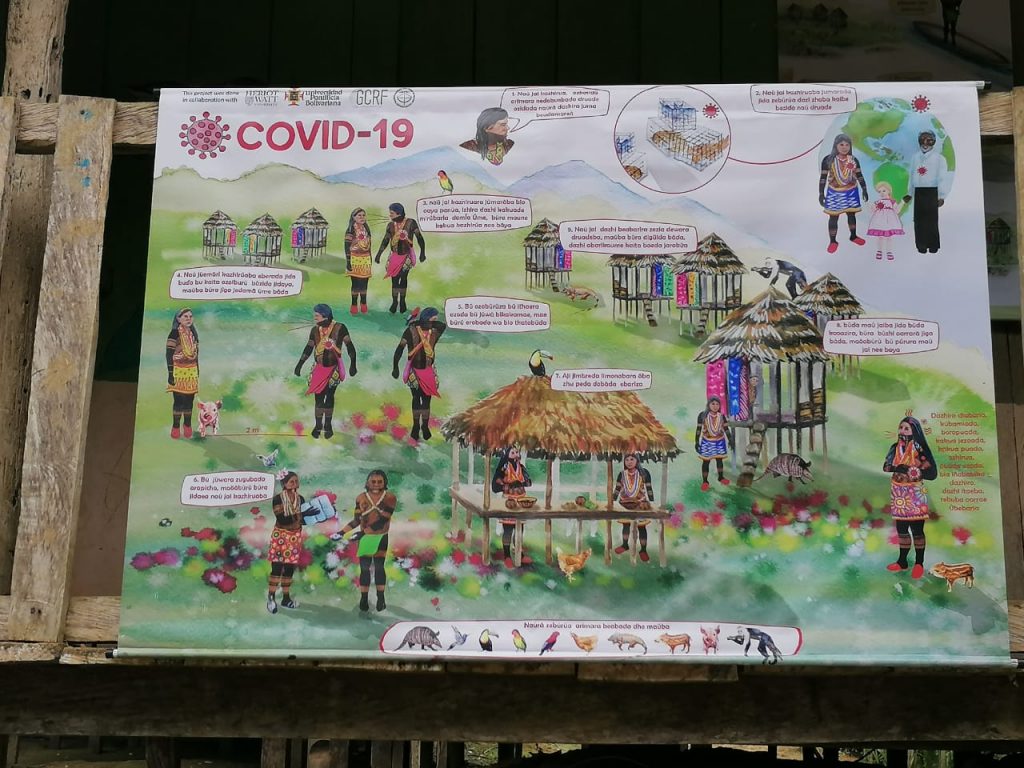The Covid-19 pandemic created special challenges for indigenous communities around the world. Their beliefs affect their experience of the disease and how they respond to external advice. Dr Agnessa Spanellis worked with Colombian researchers to bridge indigenous beliefs with official guidance.
The Department of Choco on the Pacific Coast of Colombia is one of the poorest regions in the country. Basic health care and services are limited and many settlements do not have access to communication technology. There are six languages spoken in the area, and literacy levels are low.
A team from Universidad Pontificia Bolivariana in Medellin, led by Dr Paula Zapata and Dr. José Mauricio Hernández Sarmiento have been working in the area for many years. They wanted to discover the prevalence of the virus in these remote areas. Dr Spanellis experience in gamification offered new ideas for communicating about transmission and treatments for the virus.
Most important of all was the company the researchers gave us in this difficult time where no one wanted to support us. Dr. Mauricio brought a voice of encouragement to our colleagues in these times of pandemic. This support has not been given by anyone else, it was determined, risky, and we value it very much.
Loselinio Velazquez Tegaiza, Commission for Health of Indigenous Peoples of Choco

Posters were co-designed with community leaders to share information about the virus to low-literacy communities. The posters depict indigenous people in their traditional clothes and in their local environment.
Publications:
‘Using gamification to develop shared understanding of the pandemic: COVID-19 in indigenous communities of Choco Colombia‘ (Agnessa Spanellis, Paula A. Zapatá-Ramírez, Polina Golovátina-Mora, Anna Borzenkova and José Hernández-Sarmiento)
‘Gamification Design for Behavior Change of Indigenous Communities in Choco, Colombia, During COVID-19 Pandemic’ (Ganna Borzenkova, Polina Golovátina-Mora, Paula Andrea Zapata Ramirez, Jose Mauricio Hernandez Sarmiento)
‘How gamification helped explain the threat of COVID-19 to Indigenous people in Colombia‘ (Agnessa Spanellis, Paula A. Zapatá-Ramírez, and Polina Golovátina-Mora)
‘Researchers tell how the Indigenous people of Chocó faced Covid-19’ https://www.eltiempo.com/vida/ciencia/investigadores-cuentan-como-los-indigenas-del-choco-enfrentaron-al-covid-19-627771
